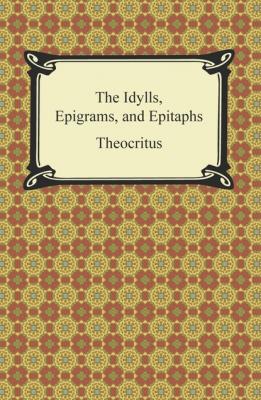The Idylls, Epigrams, and Epitaphs. Theocritus
Старинная литература: прочее.The Idylls, Epigrams, and Epitaphs
Год выпуска 0
isbn 9781420943825
Автор произведения Theocritus
Жанр Старинная литература: прочее
Издательство Ingram
Theocritus of Syracuse (born c. 300 BCE,—died after 260 BCE) is remembered as the creator of ancient Greek bucolic poetry, though little is known of his life outside of his writings. He was probably born in Syracuse, in Italy, and lived for a time in Alexandria when he gained the patronage of Ptolemy Philadelphus. This lyric and pastoral poet wrote what was termed eidyllia («idylls»), which means «little poems,» that reflected the love he felt for his homeland. Theocritus was quite innovative, drawing themes and techniques from epic, archaic lyric, New Comedy and mime genres, often blurring the lines between cultural divisions. This edition contains the idylls, epigrams and epitaphs of Theocritus, which include his most famous stories about Daphnis, the mythological shepherd who died of unrequited love, and Cyclops, as well as poems to Hiero and Ptolemy. His poetry influenced such writers as Moschus of Syracuse, Virgil, John Milton and Percy Bysshe Shelley.
